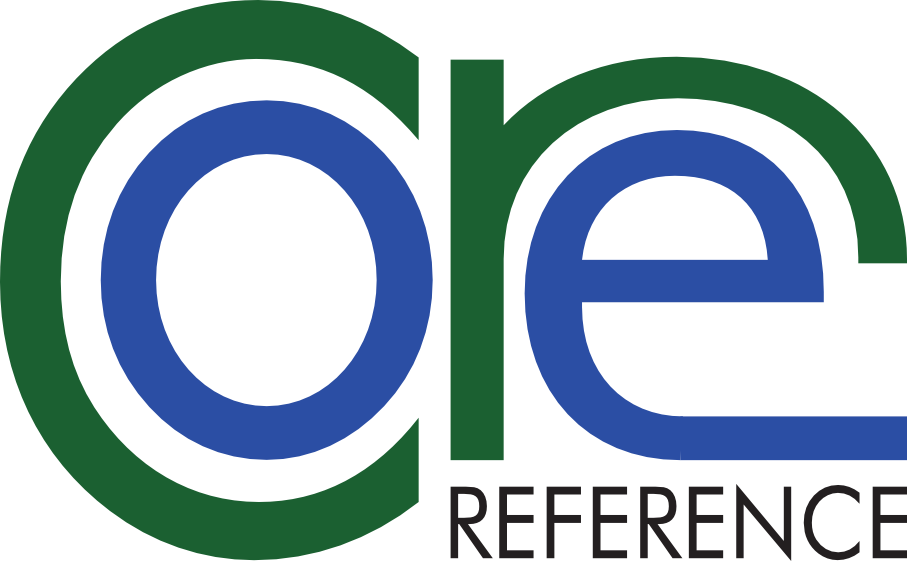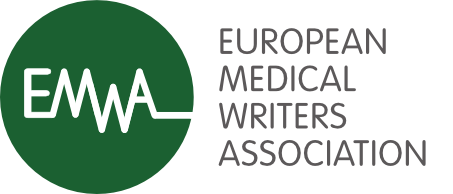April 2024
Attending EMWA Valencia May 2024?
We are running the free CORE Reference session on EMWA Symposium Day - Thursday 09 May - from 09.00-10.30. If you registered for the Symposium, this precluded you from signing up for the simultaneous CORE Reference session. However, if you wish to drop by you are most welcome, and we ask that you email to emwaconference@emwa.org with a note of your intention to help us more accurately estimate the number of potential participants.
Agenda:
- Value of CORE Reference for Disclosure-Ready CSRs & Continuing Professional Development (CPD) resources
- Real life Policy 0070 submissions, including planned versus actual timeline
- Policy 0070 Re-launch: Anonymisation Report (AnR) Template and insights on completion
- Medical devices CPD, including MD and drugs spaces intersection
- CORE Reference 2023 Utility Survey Results – An Overview
- Breaking news (including the launch of the revised CTIS transparency rules and new CTIS website in June 2024 and the new draft guidance on PPD and CCI within the MAA dossier)
Thank you.
Medicines and Vaccines
CTR and CTIS
1. The EMA has published an updated version of the Revised CTIS transparency rules, historical trials and interim period: Quick Guide for Users with the addition of the following 3 sections:
- Historical trials, submitted to CTIS before launch of new public website
- Interim period approach
- Revised CTIS Transparency rules: useful material.
2. A video recording of the online CTIS webinar held on 25 March 2024 and covering the final year of transition to the CTR is available to view here.
3. On 24 April 2024, EMA hosted a CTIS Bitesize talk on alternate Investigational Medicinal Product Dossier – Quality (IMPD-Q) and new guidance on Auxiliary Medicinal Products (AxMP). A video recording will be made available after the event within 60 days.
4. CTIS sponsor end user training programme: Sponsors can already register for this June-24 training session to support user preparedness for CTIS.
5. On 22 Apr 2024, EMA Newsroom reported “The revised transparency rules for the Clinical Trials Information System (CTIS) will become applicable on 18 June 2024, with the launch of a new version of the CTIS public portal.” The new rules and some key summary information are available on the EMA ACT EU ‘Implementation of the EU CTR’ webpage. Key updates include dropping the deferral mechanism and streamlining the data fields and documents made public to those that really benefit the public. At the current time, i.e., in the interim period until 18 June 2024, Sponsors should follow the principles of the revised CTIS transparency rules, as defined in section 4 of the ACT EU Q&A.
Sponsors can refer to the quick guide for users (v1.3, including details on go live date, on applications’ view and on historical trials publication) for an overview of the changes. To support sponsors in adapting their business processes accordingly a CTIS Bitesize talk on the topic is planned on 20 June 2024. At time of writing the April NewsBlast, the event details were not yet available.
6. EMA will hold a CTIS: Walk-in clinic - 15 May 2024, 16:00-17:00 Amsterdam time. The clinic provides an opportunity for sponsors to receive practical information about the Clinical Trials Information System by asking questions to CTIS experts in real time.
EU Regulatory
1. The EU Innovation Network, together with ACTEU, is hosting a free information and training webinar on Simultaneous National Scientific Advice (SNSA) on 19 April 2024. Dive deep into the SNSA pilot, understand its benefits, and see how it can streamline the development process for new medical products. Target audience is big pharma, SMEs, and academic institutions The event will be broadcast live and a video recording posted within 60 days. Please use Slido to submit questions in advance before 12 April.
2. The report for the ACT EU Clinical Trials Analytics Workshop held on 25-26 Jan 2024 is now available. This multi-stakeholder workshop focused on the transformative potential of data about clinical trials, and has been organised under the ACT EU initiative. The goal was to identify shared research priorities which maximise the value of these data to support evidence-based decision-making and fuel innovation.
European Heath Data Space (EHDS) News
On 24 April 2024, MEPs approved the creation of the European Health Data Space (EHDS). The provisional agreement still needs to be formally approved by the Council. Once published in the EU’s Official Journal, it will enter into force twenty days later. It will be applied two years after, with certain exceptions, including primary and secondary use of data categories, which will apply four to six years later, depending on the category.
UK and MHRA News
1. Following the UK’s exit from the EU, MHRA became a full Member of ICH in May 2022. A page directory for current ICH Guidelines implemented by MHRA is now available. This page will be updated as new guidelines are implemented by MHRA.
2. Keep an eye on the UK’s National Health Service (NHS) Health Research Authority’s (HRA) Make it Public campaign page for highlights of the Make it Public week held in March 2024. As a reminder, the Make it Public campaign is dedicated to making research open and accessible to all. The campaign aim is for 100% registration of clinical trials.
FDA Guidance and News
1. FDA's CDER has recently launched the CDER Center for Clinical Trial Innovation (C3TI). C3TI is a central hub that supports innovative approaches to clinical trials that are designed to improve the efficiency of drug development. C3TI aims to promote existing CDER programs and spur future innovation activities through enhanced communication and collaboration. C3TI will enable internal and external parties to access information more easily, engage in collaborations, identify resources that can further support the use of innovative modalities, and find development programmess where a concerted approach to the use of clinical trial innovations would be impactful.
EMA Guidance and News
1. HMA/EMA released the draft guidance document on the identification of personal data and commercially confidential information within the structure of the marketing authorisation application (MAA) dossier, which is open for public consultation from 12 April to 28 June 2024.
2. On 10 April, EMA issued general guidance on “Anonymisation of personal data and assessment of commercially confidential information during the preparation and redaction of risk management plans (body and Annexes 4 and 6).” EMA publishes all RMPs for all centrally authorised products published for the initial marketing authorisation application and all post-authorisation updates. The guidance also provides examples of the most frequent issues that required interaction with applicants/MAH during the pilot phase of RMP redaction.
3. EMA and the European Commission’s Directorate-General for Health and Food Safety (DG SANTE) have signed a working arrangement with the Ministry of Food and Drug Safety (MFDS) of the Republic of Korea for the exchange of confidential information on medical and medicinal products. Further details are presented in the section “News from Asia Regulators” below.
Real-World Data
1. The PHUSE Real World Evidence Working Group's project, Best Data Practices for Rare Disease Patient Foundations and Researchers, has published a new deliverable. The poster, titled ‘Ensuring Registry Data Relevance and Reliability for Regulatory Use’ focuses on data governance, integrity, fit-for-purpose data, and security/privacy.
2. DARWIN EU® (Data Analysis and Real-World Interrogation Network) is seeking 10 new data partners in 2024. Download the Factsheet: 2 Years of Experience, DARWIN EU®: Making health data count.
3. EMA published “Guidance on real-world evidence provided by EMA: support for regulatory decision-making” that describes how real-world evidence (RWE) (derived from the analysis of real-world data [RWD]) can be useful in the context of regulatory decision-making, the types of studies that can be performed, and how EMA can help identify the best resources to address a research question. This RAPS article ‘Regulators explain process for requesting real-world evidence studies by EMA’ is a good explainer.
4. TransCelerate is holding a public webinar “Is Your RWD Regulatory Ready? Considerations When Preparing RWD for a Regulatory Submission” on Thursday, 6 June 2024, 10-11:00am EST. The webinar will include 1) an overview of the Audit Readiness Initiative, which has developed a set of considerations to support audit and inspection readiness for programs incorporating RWE and focusing on processes used to document data reliability; 2) key elements of TransCelerate’s considerations and summary results of a survey to providers of data services that explored the current landscape. Register here.
Transparency and Disclosure Resources and News
1. PHUSE’s EU CTR Implementation project within the Data Transparency Working Group has posted a Year 2 update blog on EU CTR Implementation. The blog gives a summary of Year 2 of the Regulation from a sponsor perspective, with a focus on transparency aspects.
2. TransCelerate have published the slides and recording of their webinar, Enabling Individual Participant Data Return (iPDR): An Overview of TransCelerate's Individual Participant Data Return Package.
Individual Participant Data Return may include, but is not limited to:
- Individual study participant-level data, including health data, collected from and generated by a study participant throughout the conduct of a clinical study. This may include enrolment or screening period data, which are protocol defined within the schedule of assessments/activities.
- Individual study participant information and test results derived from:
- Procedures defined within the study protocol and schedule of assessments/activities but do not constitute study results
- Samples collected from the study participant during the progress of the study
- Individual participant information and test results derived from samples collected from the study participant during the progress of the study.
3. El Emam et al. have published the open access paper “An evaluation of the replicability of analyses using synthetic health data.” The article describes the use of synthetic data generation as a privacy preserving approach for sharing health data and analyses its reproducibility.
4. The Clinical Research Data Sharing Alliance (CRDSA) has released 2 draft documents for public comment, both of which can be found here:
- Standard for Sharing Clinical Study Data, dated 5 March 2024. This draft standard is designed to maximise research utility while responsibly protecting patient privacy and intellectual property. The public comment period is open through 31 May 2024.
- Standard for Secondary Analysis of Clinical Study Data, dated 11 April 2024. This draft standard aims to help researchers conduct robust analyses and objectively interpret the findings. The public comment period is open through 31 May 2024.
5. ICMJE recommendations update 2024: Key updates to the ICMJE Recommendations for the Conduct, Reporting, Editing, and Publication of Scholarly Work in Medical Journals include guidance on the use of AI by authors, editors and reviewers. Other important updates include statements on fair authorship assignment and protection of research participants.
Development Strategy News
1. The blog post Best Practices in Clinical Study Protocol Writing provides an outline/guide for how to approach protocol development. Key points for different functions include knowing your scope, developing a study outline (synopsis) early with a schedule of activities (schedule of events) early, clearly defining objectives and endpoints, and keeping the end user (i.e., investigators, site staff, regulators, study personnel) in mind when writing and structuring content.
2. This webinar recording on Sample Size Re-Estimation: Risk Mitigation at the Planning Stage provides a detailed overview on sample size strategy. As sample size re-estimation is becoming more commonplace (either to adequately power the study or for other reasons such as participant enrichment), all protocol development stakeholders benefit from understanding what it means. The webinar walks though the types of sample size re-estimation, the difference between blinded and unblinded re-estimation, and operational and regulatory considerations.
3. Nguyen et al.’s review article “Regulatory Issues of Platform Trials: Learnings from EU-PEARL” provides the most up-to-date assessment of considerations when developing a platform master protocol. Key discussion points include design elements such as multiplicity adjustment for multiple comparisons, considerations for submissions, regulatory interactions, HTA assessment, and statistical challenges. The article also provides a concise summary of SolidAct - one of the first platform studies submitted under CTIS (EU-CTR).
Artificial Intelligence/Machine Learning
1. Advance notice to “save the date” for a free hybrid public workshop on AI in drug and biological product development. The joint FDA/CTTI workshop will be on 6 Aug 2024, from 10:00 a.m. – 5:30 p.m. EDT. Registration for the public workshop opens on 7 May 2024 with additional details about registration, speakers and guests to be announced. The general link to CTTI webinars page is here.
2. Maleki’s preprint of Clinical Trials Protocol Authoring using LLMs reviews how generative AI can be used to develop protocols. Using metadata from clinicaltrials.gov and Trial Trove protocols, they touch "T5 LLM" models and GPT-4. Using a reference set of 40 protocols, they developed sections 2 and 4 (Introduction and Study design) examples.
3. On 22 April, EFPIA released a statement on the use of AI in the medicinal product lifecycle in the context of the AI Act. In the statement EFPIA outline five considerations they consider critical for the use and governance of AI across the medicine development lifecycle.
News from Asia Regulators
On 25 April 2024, the Ministry of Food and Drug Safety (MFDS) of the Republic of Korea signed a working arrangement with EMA for the exchange of confidential information on medical and medicinal products. This allows for the exchange of sensitive information about medicinal products as part of their regulatory and scientific processes. This includes confidential information on the safety, quality and efficacy of human medicines (already authorised or under evaluation) as well as information on inspections, regulatory guidance and legislation.The confidentiality arrangement is valid for an indefinite period, does not require a renewal, and provides a framework for the EU and the Korean authorities to further develop regulatory cooperation.
Medical Devices
This subsection covers transparency in relation to medical devices, and the emerging intersection of the regulatory medical devices and the regulatory drugs spaces.
General Updates and News
1. A Regulatory Focus feature article written by Bogaert and Paulussen published in March 2024 entitled “The impact of the EU IVDR on clinical trials” can be downloaded from here.
2. The EMA is currently running a pilot programme offering scientific advice for high-risk (Class IIb and Class III) medical devices. EU-based manufacturers or their authorised representatives can apply until 30 June 2024. An application form can be downloaded under the section Scientific advice pilot for high-risk medical devices.
3. Viroux et al. share insights on cost of compliance under the EU MDR in this white paper “A cost-effective approach to EU MDR compliance”
4. The European Commission has published the final report of the Study on the implementation of Article 17 of Regulation (EU) 2017/745 on medical devices on the EU market.
5. FDA’s electronic Submission Template And Resource (eSTAR) is now available for voluntary use for 513(g) requests for information to CDRH. This interactive PDF form guides applicants through the process of preparing a comprehensive medical device submission.
6. On 23 April 2024, the Notified Body BSI will organise a webinar entitled “Extension to IVDR transition timelines: What this means to IVDs and what steps is BSI taking to foster IVDR transition”. Register here.
7. The MDCG has released key guidances in April:
- MDCG 2024-4 Safety reporting in performance studies of in vitro diagnostic medical devices under Regulation (EU) 2017/746. An Appendix contains a Performance Study Summary Safety Reporting Form in Excel format.
- MDCG 2024-5 Guidance on content of the Investigator’s Brochure for clinical investigations of medical devices. This guidance is to assist medical device manufacturers submit the necessary documentation to support clinical investigations that is part of the Investigator’s Brochure (IB).The guidance applies to clinical investigations as defined by the Medical Device Regulation (MDR) and is not intended for clinical investigations for in vitro diagnostics.
8. The evolution of Canada’s medical device regulatory framework is reviewed in an open access RAPS article. The author, Karen Zhou traces the development of Canada’s regulatory framework, and compares the regulatory frameworks in Canada and the US.
EU Transparency
EUDAMED
1. The European Commission has set up the EUDAMED Information Centre as the central point of support for EUDAMED users. It contains a wide range of documentation and resources, including a detailed FAQ and a library of all platform user guides. EUDAMED is the database of Medical Devices available on the EU Market, its key aim being the improvement of transparency and coordination of information for these products.
2. On 25 April, the European Parliament voted to extend the transition period of the In Vitro Diagnostic Medical Devices Regulation (IVDR) and facilitate the application of certain EUDAMED requirements. Under the transition measures, high-risk class D diagnostics would get until December 2027 to undergo a conformity assessment under IVDR; class C, or high individual and/or moderate public health risk tests, will have until December 2028, and low risk class A sterile and class B tests would have the deadline extended to December 2029.
UK MHRA
1. On 10 April 2024, the UK’s MHRA added Combined review of a CTIMP and Medical Device section and accompanying guidance Combined IMP Device guidance to the guidance page “Notify the MHRA about a clinical investigation for a medical device”. Combined review is the way research teams seek approval for new Clinical Trials of Investigational Medicinal Products (CTIMPs) and combined medicine and device trials.
2. This independent report “Equity in medical devices: independent review” advises the UK government on the health impact of potential ethnic and other biases in medical devices and makes recommendations for more equitable solutions.


